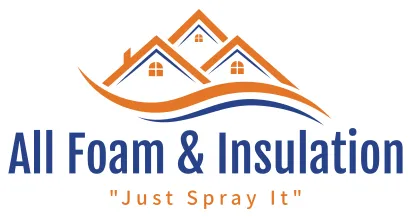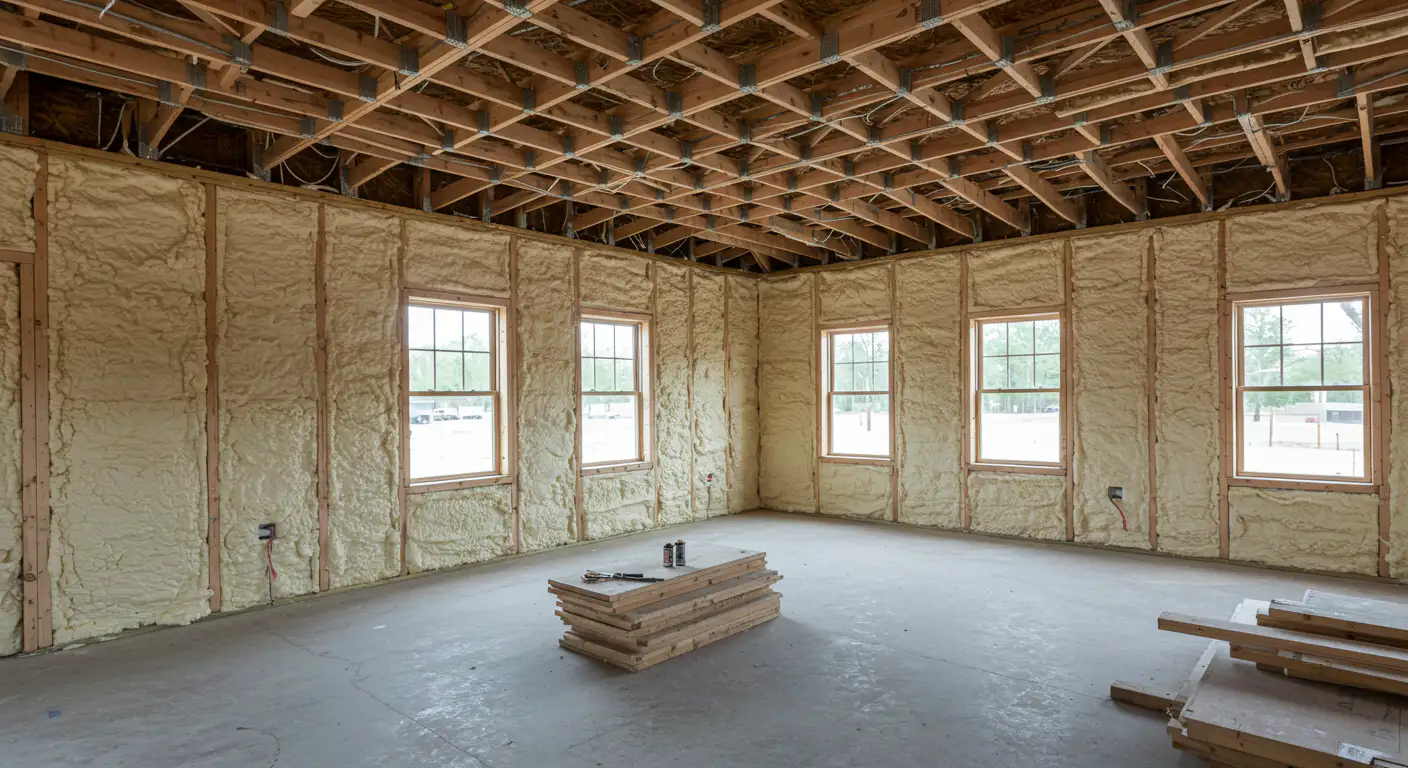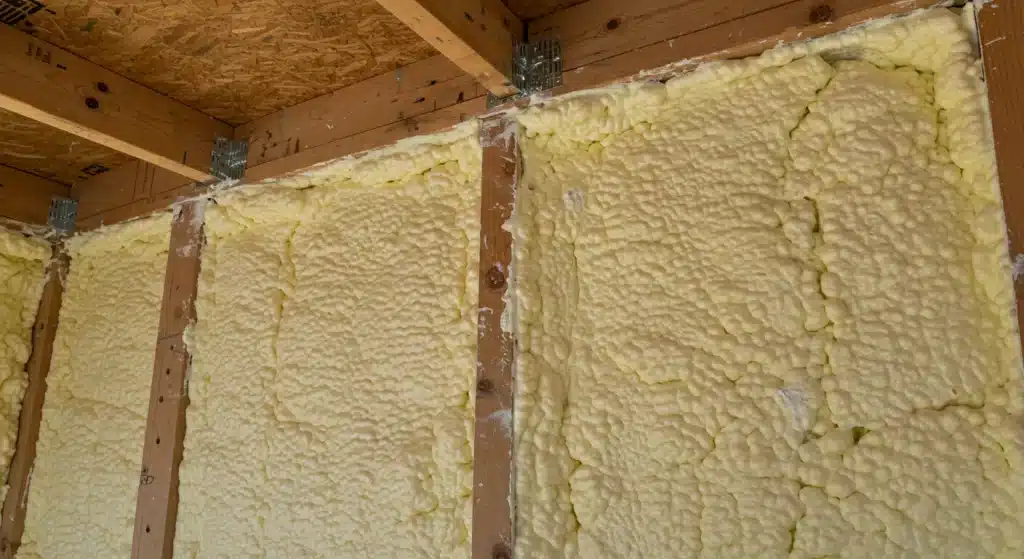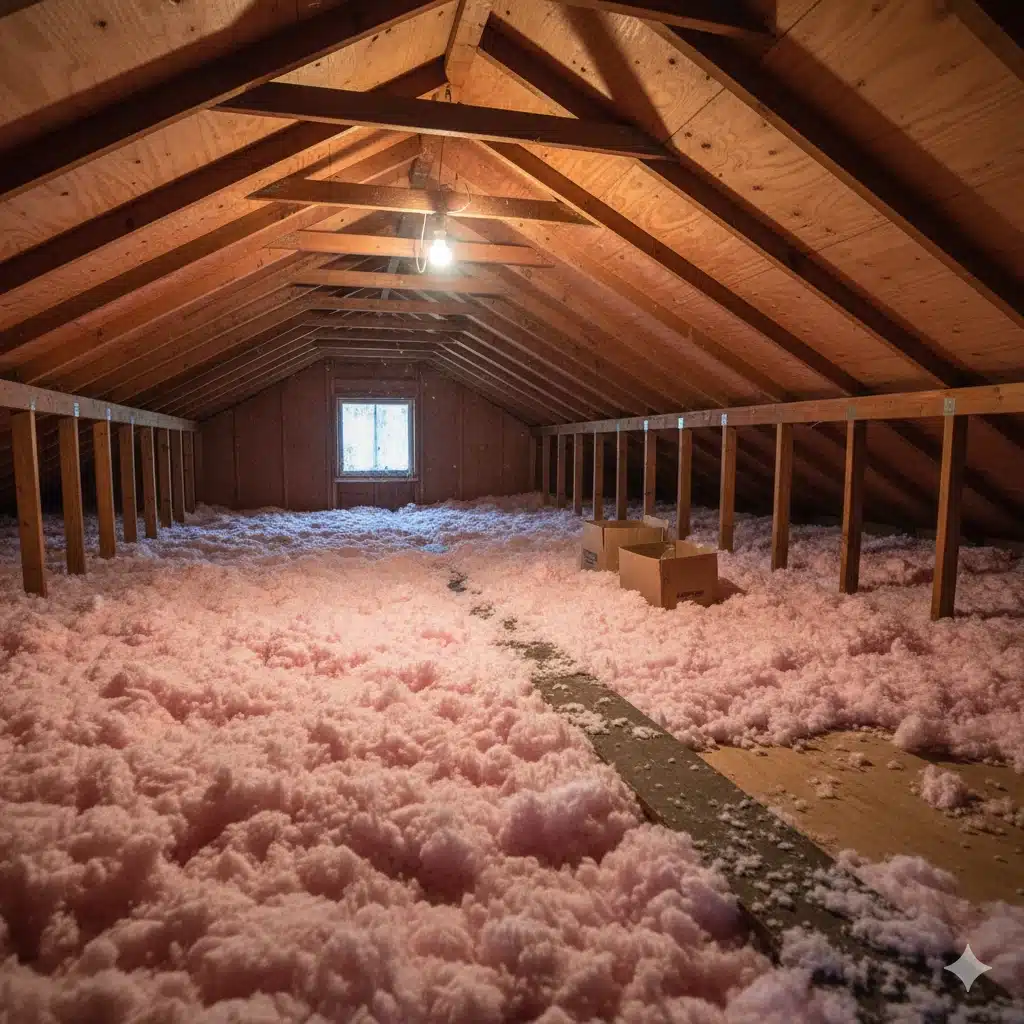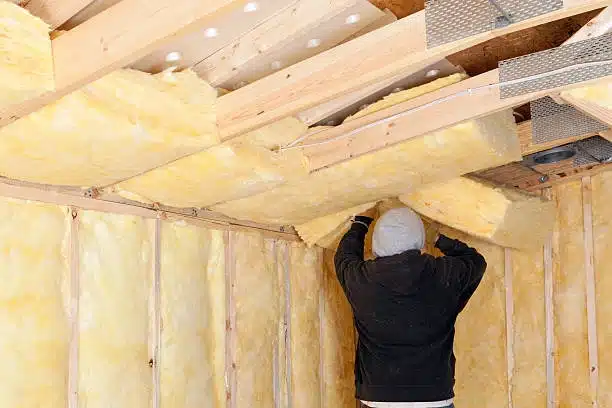Understanding Medford’s Climate and Its Impact on Insulation
Medford, Oregon, experiences a range of weather conditions throughout the year. Summers bring high temperatures, often reaching the upper 90s, while winters can be damp and cold. This variation makes insulation a critical factor in maintaining energy efficiency and indoor comfort. Traditional insulation methods may not provide the airtight seal needed to combat temperature fluctuations, moisture infiltration, and energy loss.
How Spray Foam Insulation Addresses Medford’s Climate Challenges
Superior Thermal Resistance
Spray foam insulation provides one of the highest R-values per inch, meaning it offers better resistance to heat flow than fiberglass or cellulose. Given Medford’s warm summers and cool winters, this makes it an excellent choice for stabilizing indoor temperatures and reducing reliance on heating and cooling systems.
Moisture and Mold Prevention
With regular rainfall and occasional humidity spikes, moisture infiltration is a common concern for homeowners. Unlike traditional insulation that can absorb water and lead to mold growth, spray foam forms a continuous barrier that repels moisture. This helps protect walls, attics, and crawl spaces from damage over time.
Air Sealing Capabilities
One of the primary reasons homes lose energy is air leakage. Small gaps in traditional insulation allow conditioned air to escape and outdoor air to enter, making HVAC systems work harder. Spray foam expands upon application, sealing cracks and voids effectively. This reduces drafts and helps maintain consistent indoor temperatures.
Comparing Spray Foam to Other Insulation Types
Fiberglass Insulation
- Lower upfront cost but less effective at air sealing
- Susceptible to moisture absorption, leading to mold risks
- Requires more material to achieve the same R-value as spray foam
Cellulose Insulation
- Made from recycled materials, making it environmentally friendly
- Can settle over time, reducing its effectiveness
- More prone to moisture retention, leading to degradation
Spray Foam Insulation
- High R-value per inch, reducing energy costs
- Forms a seamless, airtight seal
- Resistant to water, mold, and pests
- Long lifespan with minimal maintenance
Enhancing Energy Efficiency with Spray Foam
Lower Energy Bills
By preventing heat loss in the winter and heat gain in the summer, spray foam reduces the workload on heating and cooling systems. Many homeowners report significant savings on energy bills after installation.
HVAC System Optimization
Since spray foam minimizes temperature fluctuations, HVAC units operate more efficiently. This can extend the lifespan of the system and reduce the need for repairs.
Eco-Friendly Benefits
A well-insulated home consumes less energy, leading to a reduced carbon footprint. Spray foam’s durability also means fewer replacements and less material waste compared to other insulation types.
Where to Use Spray Foam in Your Home
Attics
Applying spray foam in attics prevents heat from rising and escaping, keeping the home cooler in summer and warmer in winter.
Crawl Spaces
Crawl spaces are prone to moisture and drafts. Spray foam provides a protective barrier, reducing humidity and improving indoor air quality.
Walls
Both new construction and retrofit projects benefit from spray foam’s airtight seal, reducing noise transmission and enhancing structural integrity.
Professional Installation for Long-Term Performance
While some insulation types can be installed as a DIY project, spray foam requires professional application for the best results. Trained technicians ensure proper expansion and coverage, avoiding issues like over-application or gaps. If you’re considering an upgrade, working with a trusted provider ensures a smooth installation process.
Get Expert Advice for Your Home
If you’re ready to improve your home’s insulation, All Foam & Insulation, LLC offers professional spray foam services tailored to Medford’s unique climate. Call (541) 826-9600 or email [email protected] for a consultation.
Frequently Asked Questions
How long does spray foam insulation last?
Spray foam insulation can last for decades without degrading, providing long-term energy efficiency and moisture protection.
Is spray foam safe for my home?
Yes, once properly cured, spray foam is safe. It does not release harmful chemicals and improves indoor air quality by reducing allergens and moisture buildup.
What is the cost of spray foam insulation?
The cost varies depending on the size of the project, but many homeowners see a return on investment through lower energy bills and reduced maintenance costs.
Can spray foam be applied over existing insulation?
Yes, in some cases, spray foam can be used alongside existing insulation to enhance performance. However, a professional evaluation is recommended.
Does spray foam help with soundproofing?
Yes, closed-cell spray foam has sound-dampening properties, reducing noise transmission between rooms and from outside sources.
Will spray foam insulation work in older homes?
Absolutely. Spray foam is an excellent choice for retrofitting older homes by sealing drafts and improving energy efficiency without major renovations.
Can I install spray foam myself?
While DIY kits exist, professional installation ensures proper application, safety, and compliance with local building codes.
How soon can I re-enter my home after installation?
Curing times vary, but most homes are safe to re-enter within 24 hours after application.
Is spray foam flammable?
Spray foam is treated with fire retardants to improve safety. However, like all building materials, it should be installed following fire safety guidelines.
How does spray foam compare to rigid foam boards?
Spray foam provides a seamless, airtight barrier, while rigid foam boards require careful sealing at seams to prevent air leakage.
For more details on how spray foam can benefit your home in Medford, contact All Foam & Insulation, LLC at (541) 826-9600 or [email protected].

